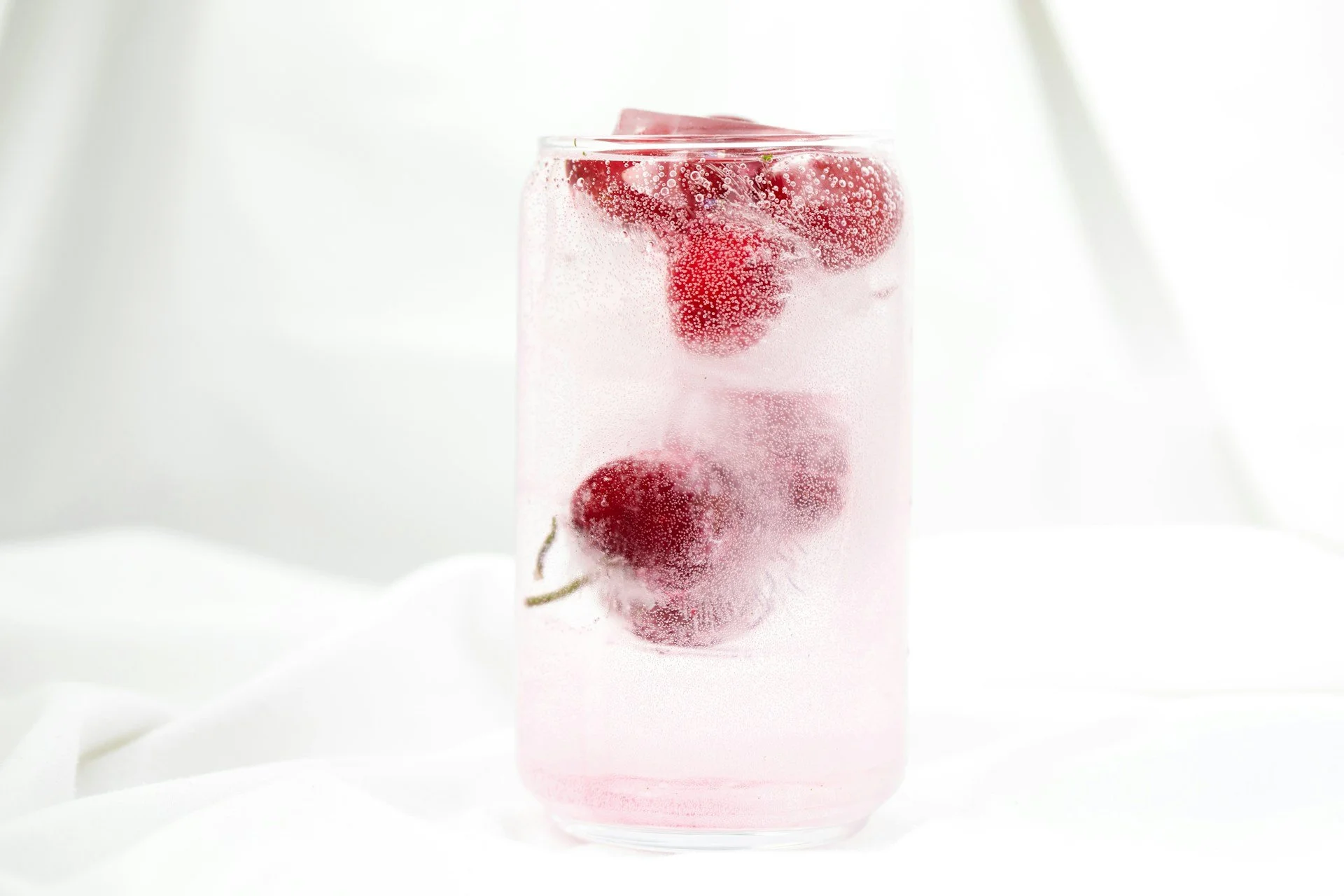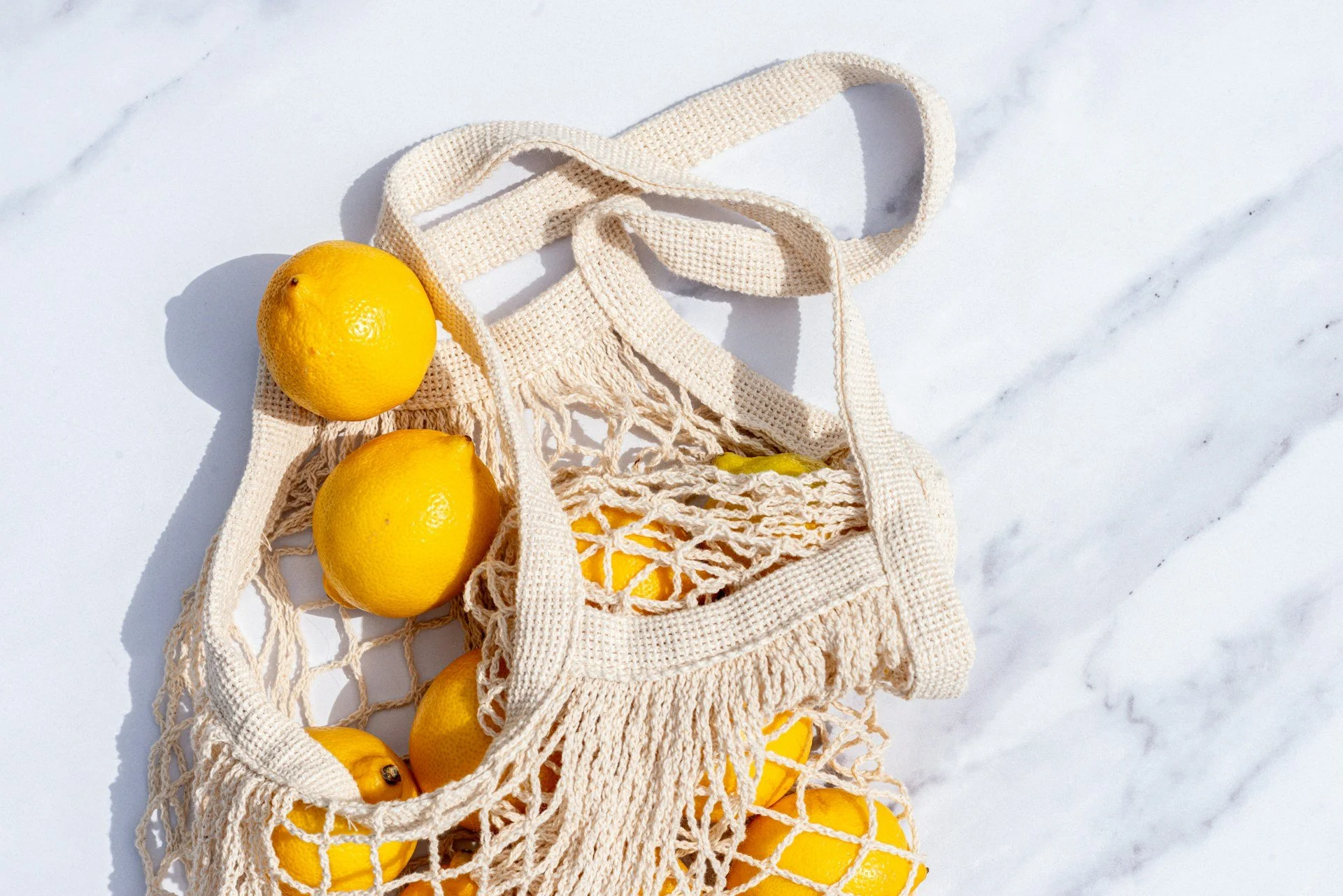A nutritionist's guide to Hydration: best tips and healthy drink recommendations
Staying hydrated is one of the easiest ways to support your overall health. But what’s the best way to hydrate, and which drinks should you be reaching for? And what about adding electrolytes to your water: do you really need them? Oh, and coconut water: is it worth the hype? What about caffeine? Does it dehydrate you? Let’s take a closer look.
Why fluids are essential for your body
In simple terms, fluids play a crucial role in keeping our bodies functioning properly. They help transport nutrients to our cells, flush out waste, regulate body temperature, and support digestion. Fluids also help keep our joints lubricated and ‘’cushion’’ our organs ¹. Essentially, staying hydrated allows your body to perform all its necessary tasks smoothly, from thinking clearly to keeping your muscles working efficiently.
Why hydration matters
Hydration is essential for energy, digestion, skin health, and cognitive function. Even mild dehydration can leave you feeling tired, unfocused, and affect tasks requiring attention and memory. It can also impact your mood and performance, whether at work or during exercise ² ³ ⁴. Since our bodies are about 60% water, it’s vital to maintain that balance. Remember, not all drinks hydrate equally, and your choice of hydration can also influence your nutrition.
Drink recommendations for optimal hydration
Here are my favorite hydration-boosting drinks that I regularly recommend to clients, with an emphasis on natural options:
Infused water with fruits
Infused water is a fun, refreshing way to add a burst of flavor to plain water without any added sugars. Try adding lemon, mint, berries, or cucumber for a natural hint of sweetness and extra vitamins.
Herbal teas
Herbal teas like peppermint, chamomile, or rooibos can be hydrating and soothing, perfect for winding down or warming up.
Cold-Pressed juice with low glycemic index vegetables and fruits
Cold-pressed juices are a nutrient-packed hydration option. Think green juices with cucumber, spinach, celery and a green apple for a natural, slow-releasing source of energy. Other low glycemic index vegetables that are great for cold-pressed juicing include kale, zucchini, carrots, collard greens, and green bell peppers.
Bone and Veggie broth
Broth, especially when homemade, is rich in minerals and electrolytes like magnesium, potassium, and calcium (and bonus protein). It’s a nourishing option, especially in cooler months or when you need to support your immune system.
5.Low-Glycemic smoothies
Smoothies made with water-rich, low-glycemic fruits like berries and greens provide hydration along with fiber, vitamins, and minerals.
6.Kombucha
Kombucha is a fermented tea that provides probiotics for gut health and can also be a hydrating option. Just be mindful of added sugars, and opt for low-sugar varieties.
7.Sugar-Free lemonades
Make your own refreshing lemonade by mixing lemon juice with water, mint, ice cubes and a touch of stevia (or no sweetener at all).
8.Sparkling water
For a bubbly treat, opt for high-mineral sparkling water and add raspberries, cucumber, or berries for a subtle infusion of flavor without the sugars found in many flavored waters.
9.Consume water-rich fruits and vegetables during the day
Eat foods like watermelon, strawberries, cantaloupe, peaches, citrus fruit, cucumbers, zuchinni, tomatoes, bell peppers and celery. They have a high water content, helping you stay hydrated while also delivering vitamins and fiber.
Hydration tips and tricks
Now that you’ve got plenty of drink ideas, let’s talk about how to stay hydrated throughout the day.
Hydrate first thing in the morning
After a long night's sleep, your body is naturally dehydrated. Drinking a glass of water right after waking up can get your body ready for the day.
Does Caffeine dehydrate you?
While caffeine is often thought to be dehydrating, recent research shows that moderate caffeine intake (around 250-300 mg, or 1-3 cups of coffee) doesn’t significantly increase water loss in people who regularly consume it. However, very high doses of caffeine (over 500 mg) can lead to increased urine output. So, if you enjoy your morning coffee, you don’t need to worry too much about dehydration, but it’s always a good idea to stay hydrated throughout the day ⁵.
Eat magnesium and potassium-rich foods
Foods rich in magnesium and potassium naturally support your body's electrolyte balance. Potassium-rich foods include leafy greens, lentils, squash, potatoes, kidney beans, avocados, and bananas, while magnesium can be found in leafy green vegetables, spinach, chickpeas, pumpkin seeds, chia seeds, raw cacao, and more ⁶ ⁷.
Understand your fluid needs
Fluid needs vary depending on your weight, sex, activity level, health conditions, medications, diet and the weather. A general rule of thumb is to aim for around 30-35 ml of water per kilogram of body weight. For example, if you weigh 60 kg, you'd need about 1.8-2.1 liters a day, though you may need more if you’re active or it’s hot outside.
*Note: These guidelines are intended for general information and may not apply to every individual. It's important to find what works best for your own needs and circumstances.
5.Sip, don’t gulp
It’s better to sip water consistently throughout the day rather than gulping large amounts at once. This way, your body can absorb and utilize the water more effectively.
Drinking too much water in a short period can lead to a condition called hyponatremia. This happens when excess water dilutes the sodium levels in your blood, causing an imbalance. Sodium is essential for maintaining fluid balance in your cells, and when levels drop too low, it can lead to symptoms like headaches, nausea, confusion, and, in severe cases, even life-threatening complications.
6.Check your Hydration status
One simple way to tell if you need to hydrate (besides feeling thirsty) is to check the color of your urine. If it’s colorless, you’re well hydrated and can ease up on the fluids. A medium yellow color usually means you're in a good spot. However, keep in mind that certain medications, like B vitamins, can affect urine color, so don’t rely on this method completely.
What about electrolytes, electrolytes drinks and coconut water?
I’m often asked about adding electrolytes to water, and while it’s important to maintain electrolyte balance, I’m not a big fan of adding them unless you have a specific need (like post-workout or during intense heat exposure). I prefer getting electrolytes from natural food sources which offer a variety of other nutritional benefits as well.
Gatorade and other electrolyte drinks can be beneficial during intense exercise , sporting events or for people working outside throughout the day in high heat.However, they often contain added sugars and ingredients that aren’t necessary for most people’s regular hydration needs.
As for coconut water, while it’s a decent source of potassium, I personally don’t go out of my way to drink it. It can be pricey, and you can easily get those minerals from more accessible sources. But hey, if you love it, go ahead and enjoy! The same applies to Gatorade and other electrolyte drinks.
My infused water recipes
Infused water is hands down one of my favorite ways to stay hydrated: it’s fresh, fun, and you can get creative with the flavors! Whether you prefer sparkling or still water, and fresh or frozen fruit, these combos are simple and delicious. Here are some of my favorite combos you can try:
Mint, cucumber, & lime
This classic combo is ultra-refreshing: perfect for hot days or post-workout hydration, plus mint is a powerhouse herb with benefits ranging from soothing digestion to easing congestion.Raspberries & strawberries
A berry lover’s dream! Bonus: they are high in vitamin C, which supports immunity, skin health, and collagen production. Also, you know that both raspberries and strawberries contain ellagic acid, which has anti-inflammatory and anti-carcinogenic properties? It may help protect cells from oxidative stress and support overall cellular health.Honeydew melon & mint
A summer-inspired infusion that’s subtly sweet and refreshing. Honeydew melon isn’t just juicy and refreshing: it’s packed with two powerful antioxidants, lutein and zeaxanthin, carotenoids that can promote eye health.Grapefruit & oranges
Citrus-packed and super energizing! This infusion is loaded with vitamin C. Did you know that vitamin C gives iron a boost, helping your body absorb it more effectively?Lemon, ginger, & orange
A zesty, slightly spicy combo that’s great for digestion and immunity. Ginger’s active compounds, like gingerol, can help soothe the stomach and improve digestion, making it a popular natural remedy for an upset stomach and general digestive health.
Homemade electrolyte drink
When you need a little extra hydration boost (think after an intense workout or on a hot day), sometimes water just doesn’t cut it. Here’s my simple homemade electrolyte recipe that helps your body absorb fluids better:
600-700 ml water (still or sparkling)
1 g of table salt (a pinch)
1 tsp maple syrup or honey
Juice of half a lemon
This drink gives you a balanced mix of glucose, sodium, and fluid, which can help you stay hydrated without needing fancy (and sometimes overly sugary) sports drinks. Plus, it’s super easy to make with ingredients you already have at home!
Ready to change your nutrition ? Book a free discovery call
Ready to improve your hydration and overall wellness? If you’d like to work with me and explore my nutrition services, book a free 15-minute discovery call, and we can chat about how I can help you feel your best!
I look forward to helping you thrive!
Mia
Curious to learn more? These articles cover related topics to keep you informed:
References (to geek out further):
1.Lorenzo, Isabel, et al. “The Role of Water Homeostasis in Muscle Function and Frailty: A Review.” Nutrients, vol. 11, no. 8, 9 Aug. 2019, www.ncbi.nlm.nih.gov/pmc/articles/PMC6723611/#B4-nutrients-11-01857, https://doi.org/10.3390/nu11081857.
2.Adan, Ana. “Cognitive Performance and Dehydration.” Journal of the American College of Nutrition, vol. 31, no. 2, Apr. 2012, pp. 71–78, pubmed.ncbi.nlm.nih.gov/22855911/, https://doi.org/10.1080/07315724.2012.10720011.
3.Cheuvront, Samuel N., and Robert W. Kenefick. “Dehydration: Physiology, Assessment, and Performance Effects.” Comprehensive Physiology, vol. 4, no. 1, 1 Jan. 2014, pp. 257–285,
www.ncbi.nlm.nih.gov/pubmed/24692140, https://doi.org/10.1002/cphy.c130017.
4.Carlton, Andrew, and Robin Marc Orr. “The Effects of Fluid Loss on Physical Performance: A Critical Review.” Journal of Sport and Health Science, vol. 4, no. 4, Dec. 2015, pp. 357–363, https://doi.org/10.1016/j.jshs.2014.09.004.
5.Antonio, Jose, et al. “Common Questions and Misconceptions about Caffeine Supplementation: What Does the Scientific Evidence Really Show?” Journal of the International Society of Sports Nutrition, vol. 21, no. 1, 11 Mar. 2024, https://doi.org/10.1080/15502783.2024.2323919.
6.National Institutes of Health. “Office of Dietary Supplements - Potassium.” Nih.gov, 2022, ods.od.nih.gov/factsheets/Potassium-HealthProfessional/.
7.National Institutes of Health.“Office of Dietary Supplements - Magnesium.” Nih.gov, 2017, ods.od.nih.gov/factsheets/Magnesium-HealthProfessional/#h3.




























